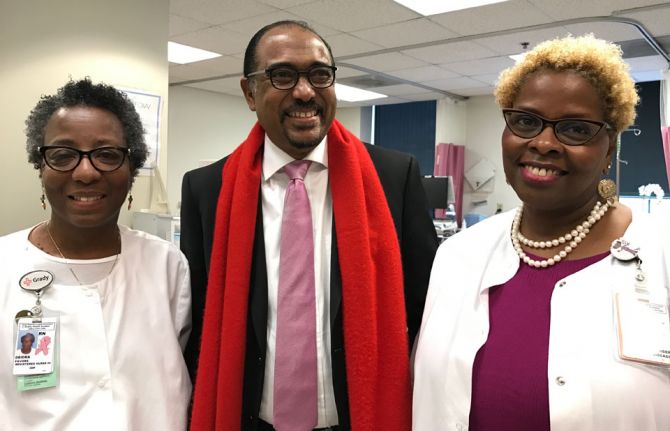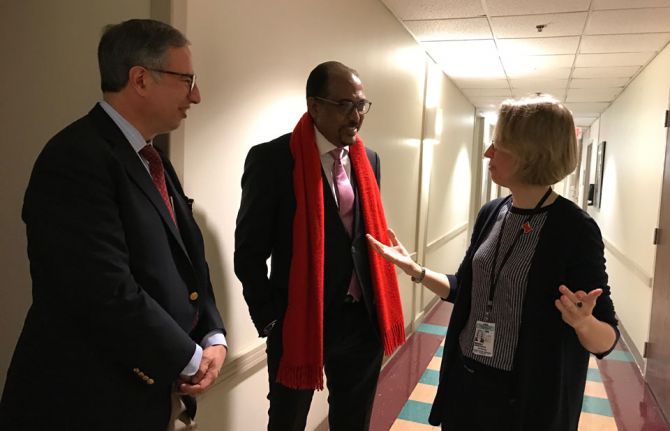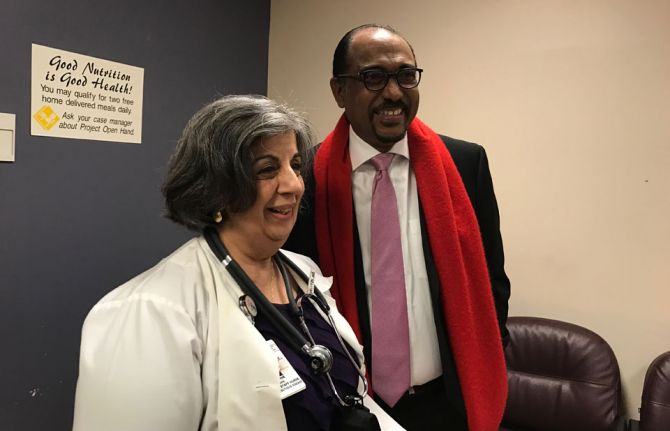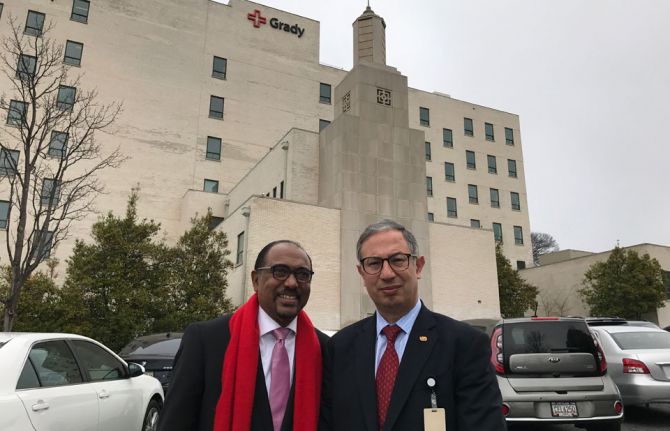




Feature Story
Ponce de Leon Center: a people-centred approach in the heart of the United States HIV epidemic
10 February 2017
10 February 2017 10 February 2017Each year, more than 6000 people are served by the Ponce de Leon Center in Atlanta, United States of America. For the past three decades the clinic has provided HIV care and services to men, women, adolescents and children living with HIV. Part of the Grady Health System, the Ponce Center is staffed by doctors and researchers from the leading research university in Atlanta, Emory University, and is considered one of the largest and most comprehensive HIV outpatient clinics in the country.
“The Ponce Center delivers comprehensive services to a vulnerable population in the heart of the United States HIV epidemic,” said Carlos del Rio, Professor of Global Health and Medicine and Co-Director of the Emory Center for AIDS Research.
Atlanta’s epidemic largely affects the most vulnerable populations, who not only live with HIV but also live in poverty and are un- or underinsured. Many of the people who come to the centre for care are already very sick, having lived with HIV for a number of years undiagnosed and untreated. Thirty-five years into the epidemic, persistent stigma still keeps many patients from accessing life-saving treatment.
In 2015, owing to late stage diagnosis and treatment of HIV, some 50% of people diagnosed at the clinic already had AIDS. More than 75% of patients at the centre have advanced, symptomatic HIV disease (less than 200 CD4 cells/mm3 and/or AIDS-defining symptomatology).
In addition to breaking down the barriers that keep people from accessing the clinic sooner for earlier diagnosis, the Ponce Center is focused on how to make it easier for people to continue life-long HIV treatment.
The clinic provides comprehensive co-located services ranging from financial counselling and nutrition to acute care and chemotherapy. Providers take an integrated approach for people who may face multiple issues, including substance use and mental health issues. One of the key components is helping patients find the right combination of medicines with the fewest side-effects.
“Social capital is about having someone who can support the patient through their diagnosis and treatment. The patients who have no one else in their corner really do struggle and that is where the personal approach at the Ponce Center comes in,” said Wendy Armstrong, Professor of Medicine at Emory University and Medical Director of the Grady Infectious Disease Center.
Helping people manage their HIV also means supporting patients as they stabilize their lives, which is why the centre encourages close ties between patients and staff. The personal attention helps to support the logistics of treatment and encourages people to keep their medical appointments. Many people who access the clinic have also volunteered to take part in research studies to improve care.
“I am grateful for the tireless work of the staff to provide people-centred care at the Ponce Centre,” said Michel Sidibé, Executive Director of UNAIDS. “This best practice approach is saving lives.”
The Ponce Centre provides a unique service to the thousands of people living with HIV in Atlanta as well as important research data and information, helping the United States to advance global efforts to end the AIDS epidemic by 2030 as part of the Sustainable Development Goals.
Region/country
Related
 Government ensures continuity of treatment in Malawi
Government ensures continuity of treatment in Malawi

10 February 2025


